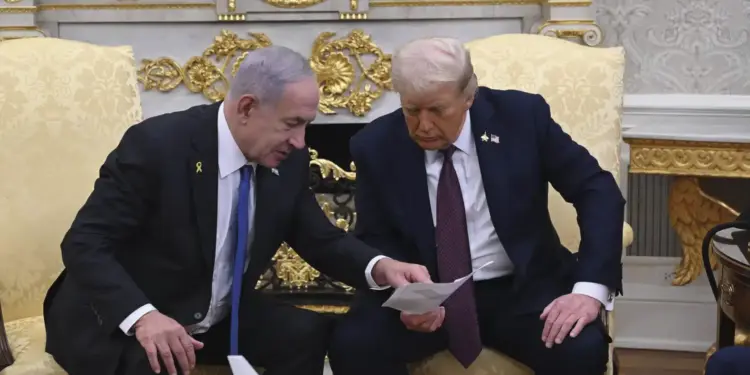Under the next diplomatic surveillance, Israeli emissaries and the Hamas movement began indirect discussions in Egypt on Monday within the framework of the peace plan proposed by American president Donald Trump. These talks, held at Charm el-Cheikh, aim to lay the foundations for a lasting ceasefire after two years of devastating war in Gaza.
Around the table are representatives of the United States, Qatar and Egypt, who play the role of mediators. Jared Kushner, advisor and son -in -law of Donald Trump, personally attended the work.
The discussions relate to the release of Israeli hostages still detained in Gaza -living or dead -, in exchange for Palestinian prisoners in the Israeli jails. The first phase of the agreement should also include the implementation of a complete ceasefire and humanitarian guarantees for Palestinian civilians.
Washington puts on a “sustainable” ceasefire
The American president said yesterday that talks could last “several days”, while claiming to have received the assurance of Israeli Prime Minister Benyamin Netanyahu as to the progressive stop of the military campaign on the Palestinian enclave.
Donald Trump also said they wanted to “transform this truce into a global political process” leading to international recognition of the Palestinian State, a promise at the heart of his diplomatic plan for the Middle East.
The European Union wants to be associated with the plan
For its part, the European Union expressed its wish to participate in the international transitional body provided for Gaza.
“Europe has an important role to play and we should be part of this process,” the head of European diplomacy, Kaja Kallas, said on Monday on Monday. The EU thus wishes to join the future “peace committee” mentioned in the Trump plan, intended to supervise the reconstruction and transitional governance of the Gazaoui territory.
On the Palestinian side, Hamas requires concrete guarantees on the end of the Gaza blockade and on the reconstruction of the territory destroyed by two years of bombing.
Many observers remain cautious, recalling the failure of previous international initiatives, often hampered by distrust between the two camps and the fragility of regional balances.








